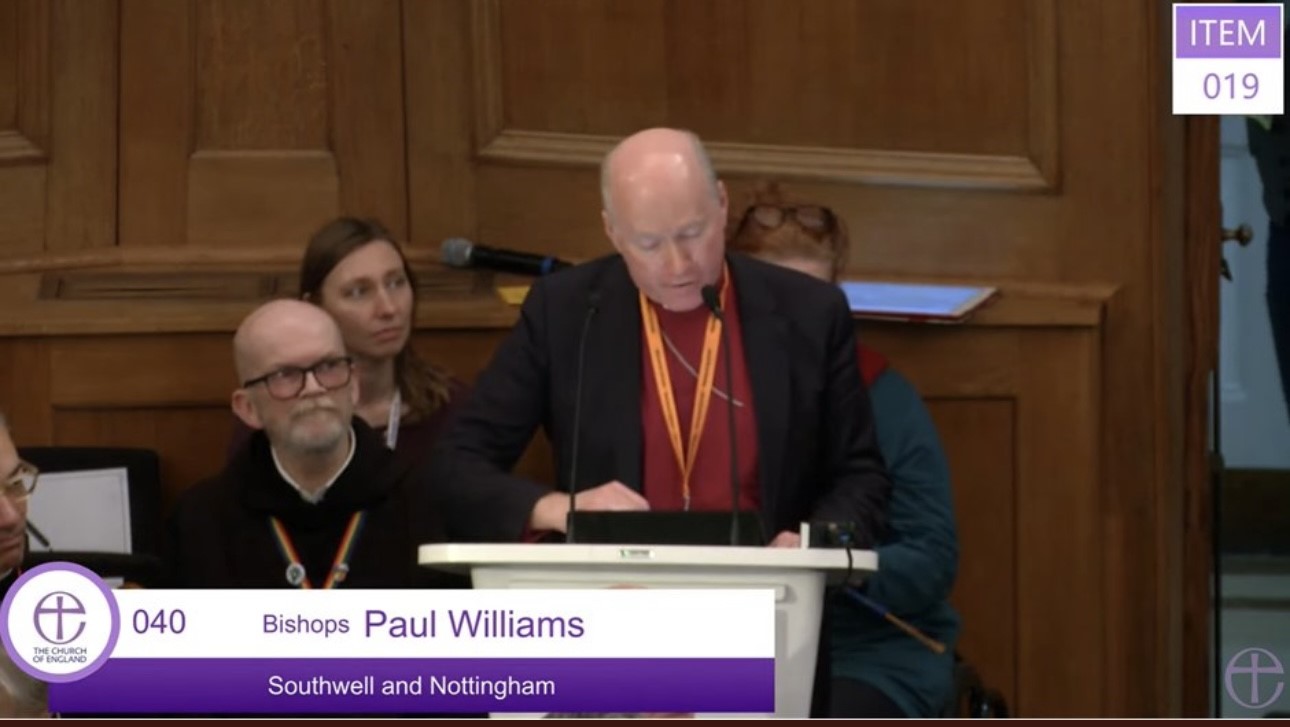Estates Evangelism Motion at General Synod
Bishop Paul spoke in a debate in General Synod today supporting a Motion to prioritise estates evangelism. He shared the story of his mother’s journey to ordained ministry and went on to speak about “the importance of seeing the value of estate ministry as an integrated part of a diocesan vision that brings blessing and strength to the whole church, serving in very diverse contexts.”
Bishop Paul’s Full Speech
In supporting this Motion, I speak with some passion and reason for deep gratitude for the evangelism and nurture by an estate church of the person most instrumental in the formation of my faith and calling to ordained ministry.
My mother experienced a profound life-change when she became a Christian in her mid-teens, growing up on a poor estate and having non-church going parents, it was the parish church on the estate who welcomed her, nurtured her young faith and gave her opportunities to serve. She left school at sixteen and so when 15 years later she began to sense a calling to ordained ministry, she was something of a novelty: a woman with a young family, having no higher education. But she was not easily put off by a variety of extra hurdles that were placed before her. After selection for ordination she was asked to undertake the two-year Aston Training Scheme – which she threw herself into. Then, determined to get the best training available at the time for a part-time ordinand in an evangelical college, she spent three years at Oak Hill – their welcome and encouragement was outstanding (I know, because age 12-15, I attended quite a few residential weekends with her). In 1983 she was ordained deaconess, then in the week following her ordination as priest at Wells in ‘94 she was installed as the first female incumbent in the diocese, serving on an estate close to where she had grown up. She was still serving there when five years later I was appointed as incumbent to one of the wealthiest parishes in the Oxford Diocese. Insight into her journey and context helped inspire the very fruitful and strategic two-way partnerships we developed at St James GX, especially with St George’s Britwell among others.
I share this story because I want to underline the importance of seeing the value of estate ministry as an integrated part of a diocesan vision that brings blessing and strength to the whole church, serving in very diverse contexts.
In Southwell and Nottingham, I commend two particular things we are learning. First, the importance of providing opportunities for young people on estates to be in partnership with others who are at a similar stage in different contexts. Our diocesan intern scheme offers an inspiring years’ experience programme, and because it has the confidence of our larger churches in urban and suburban settings, it means that young people are training together from the outset.
I believe we should be careful not to segregate people in their formation at any stage. I have seen people from less well-off backgrounds being highly effective in contexts of greater wealth and people from more well-resourced backgrounds excel in estates ministries – but the integration needs to start early.
Secondly, I believe it can contribute to forming healthier relational and spiritual cultures in larger churches when there is more diverse lay and ordained leadership. The Letter of James has much to teach and challenge us on this.
So let’s continue to prioritise and increase the investment of resources for evangelism on estates, so that the whole church can be blessed by the harvest of souls and new ministries arising from this work of the Spirit. I urge Synod to support this work.



